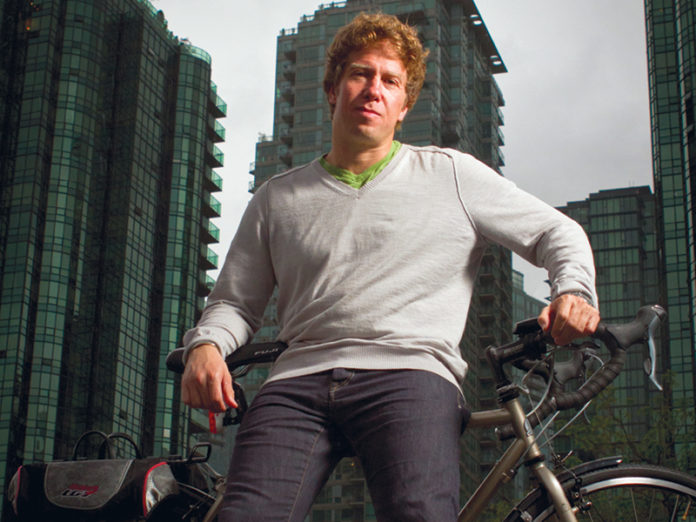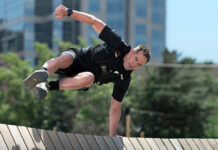
When Michael Schratter cycled 40,000 kilometres around the globe, he brought a ghost named mental illness along for the ride. Barely five years later, inspiration from that journey has helped give voice to the often-silent spectre through Ride Don’t Hide, Canada’s largest fundraising cycling event.
Schratter, a 47-year-old Vancouver elementary school teacher, is bi-polar, a condition that manifests itself in episodes of manic behaviour. “Mental health challenges weren’t things you talked about and there weren’t resources you could readily find,” says Schratter. “I became really good at hiding my issues and spent an enormous amount of emotional and physical energy trying to blend in.”
Even in the 21st century, change comes slowly as one in five people suffer from depression, schizophrenia, anxiety, eating disorders and even brain injury. It’s taken the likes of Olympian Clara Hughes, broadcaster Michael Landsberg, Margaret Trudeau, the mother of Prime Minister Justin Trudeau — and Michael Schratter — to bring conversations about mental health into the public domain.
Because of the stigma, people hide their affliction.
“Mental health challenges are invisible,” Schratter says. “Because of the stigma, people hide their affliction. Before Clara Hughes came out, the story of mental illness was only being told by crazy pyscho-killer Friday the 13th kind of crap.”
Growing up in a family of cyclists in Vernon, B.C., Schratter rode across Canada in 1994 (the year after his father died in a cycling crash) and dreamed of biking around the world. In August 2010, at the urging of his future wife, Deborah, Schratter pointed his bike south to begin a journey that would last 16 months, touch 33 countries on six continents and cycle a distance that measured the equatorial circumference of Earth.
Along the way, this curious soul attracted much conversation. Lugging his life on two wheels and wearing a T-shirt that broadcast Ride Don’t Hide, he invited others to share their stories about something that is often feared and misunderstood. But Schratter hid his own story, initially, telling strangers it was his brother who suffered from mental illness. He rode through sandstorms, witnessed a volcano erupt in Ecuador and had waves of children urge him on as he rode through Cambodian villages. He cycled through Morocco, the Balkans, Finland and around the Mediterranean. The final 6,000K from Halifax ended at Rogers Arena in Vancouver on Remembrance Day 2011.
After the global ride, the Canadian Mental Health Association helped turn Ride Don’t Hide into an annual event. It started with two community rides in B.C. and this year will feature events in 32 cities in five provinces, making it the largest single-day cycling event in Canada. Organizers hope to raise $2 million with this year’s ride on June 26.
“If I had the audacity to say one day Ride Don’t Hide would have 8,000 riders in 32 cities, that would have been crazy,” Schratter says. “Pun intended.”















